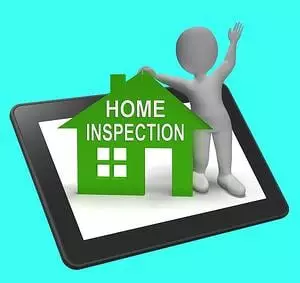You’re purchasing a home and find out you need to set up the home inspection; or perhaps you are selling your home and eagerly awaiting this next step. Either way, there are many aspects of the inspection process you should become familiar with. The home inspection is one of the biggest reasons a sale falls through, so it is important to know what to expect before the process begins. Here, we detail what both buyers and sellers need to know, such as how to choose your inspector, how to prepare for the inspections, what questions to ask, and how to handle the inspection report once completed.
Choosing a Home Inspector:
- Ask your real estate agent for a referral.
- If you get a good referral from your agent, you shouldn’t have to worry much about this part—but make sure the company is bonded and insured.
- Make sure the company does only inspections—do not choose a company that also contracts for repairs.
- Check with the inspector to be sure you and/or your agent can be present during the inspection.
What should be done prior to the home inspection:
- Clear walls of basement so inspector to check foundation for cracks and leaks.
- Be sure all light bulbs are working. If they are not, be sure to replace them so the inspector does not need to test to see if it is simply a blown bulb or if there is an actual electrical problem.
- Be sure there is easy access to attic and garage.
- If you are not living in the home, make sure electricity is on.
- Be sure furnace is in working order.
Be prepared, ask questions, understand results:
Things to determine before inspection:
- Cost of inspection—you might want to call around and compare pricing.
- How and when the inspection will be done—make sure the inspector is available within the time. frame you need so as not to delay the process.
Questions for after inspection:
- Make sure you understand everything on the report. If there is doubt, ask for clarification.
- Ask the inspector the significance of his findings. Did they find something of concern? Is it worth pushing back on the seller?
- Determine if the problems reported are common for your area and type of house. What needs to be immediately addressed upon purchase?
Talk to your Realtor about the inspection report and go over the next steps:
Let your realtor take the wheel and advise if there is anything on the report that needs to be addressed with the seller or if he or she should be renegotiating on your behalf. There are times when the inspector will find things that are of significant importance and need to be addressed immediately. Depending on the situation, your agent will contact the seller or their agent to discuss options to move forward. Will the seller be fixing the issues prior to closing, or will they honor a credit instead of repairs?
Examples include:
- The presence of termites
- Asbestos or lead paint in the home
- Mold problems
- Structural issues
- Electrical/wiring problems
Usually, the agents negotiate a lower sale price between the buyer and seller. This way, they owner does not need to oversee the project, which is especially helpful if they have already moved. This is also often preferable to the buyer for a couple of reasons. First, their purchase price will be lower than originally thought, and second, they will be able to do their own hiring and oversee the work that needs to be done, giving an added sense of security.
While there are clearly some issues that might come up that need to be addressed, as mentioned above, there are other issues that should not come up in negotiation, even though they might be mentioned in an inspection report. Those include:
- Windows without a seal (if found prior to making an offer, then certainly mention it—otherwise do not)
- Damage to outside structures, such as a shed.
- Minor water damage
- Cosmetic issues (painting, old fixtures)
The home inspection is more involved than simply having someone walk through the home and jot down his or her findings. The inspection itself could make or break a deal, and therefore must be taken seriously by both the buyer and the seller. Knowing what to expect before, during and after will help prepare you for the next step. You will be equipped to handle the results and the outcome, which is (hopefully) a mutually agreeable transaction for all parties.

